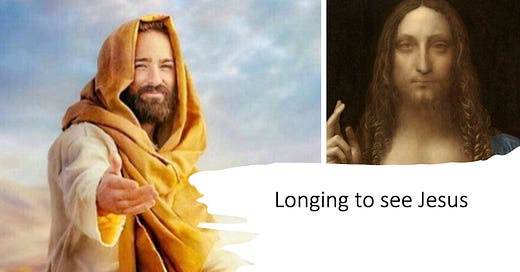Longing to see Jesus
Luke 17:20–25. November 10, 2022 - Memorial of Saint Leo the Great, Pope and Doctor of the Church
The great theologian of the third century AD, Origen, called Jesus - the kingdom of God in person. Unfortunately, the Pharisees could not realise it. Standing in the presence of the kingdom of God and asking Jesus “when the reign of God comes”, reveals how little they understood Jesus, his preaching and ministry. Jesus’ miracles, cleansing lepers, expelling demons, healing the sick, raising the dead, and providing food for the hungry should make them realise that the kingdom of God is in their midst. But, they were expecting something else. For them, as long as the Romans ruled their land, the kingdom of God did not come.
Unfortunately, this is also our problem. The Eucharist, where Jesus is truly present in our midst, does not excite many of us. Politics and the economy are making the headlines of our newspapers and are the objects of our discussion. Few of us realise that our Mass, with its liturgy of the Word and its liturgy of the Eucharist, makes the kingdom of God present in our midst.
The second part of today’s Gospel is addressed to the disciples and speaks about their desire to “see one of the days of the Son of Man”. “Come, Lord Jesus” is the prayer that ends our Bible. This desire to see Jesus, to be with him is also present in the letters of Paul. He hoped to see the day of Jesus’ coming. But as Saint Peter preached in Jerusalem, Jesus - after his ascension - must remain in heaven “until the time comes for God to restore everything” (Acts 3:21).
Again, how many of us long to see the days of the Son of Man? How many of us pray, “come, Lord Jesus”? Ancient tradition or legend tells us that Christ’s apostles could be seen pausing from time to time on their missionary journeys. As they sat and rested, they also look intently towards the East - as if expecting to see someone coming from that direction.
St. John Paul II wrote, “the kingdom of God is not a concept, a doctrine, or a program subject to free interpretation, but it is before all else a person with the face and name of Jesus of Nazareth, the image of the invisible God”. Do we long to see him?




